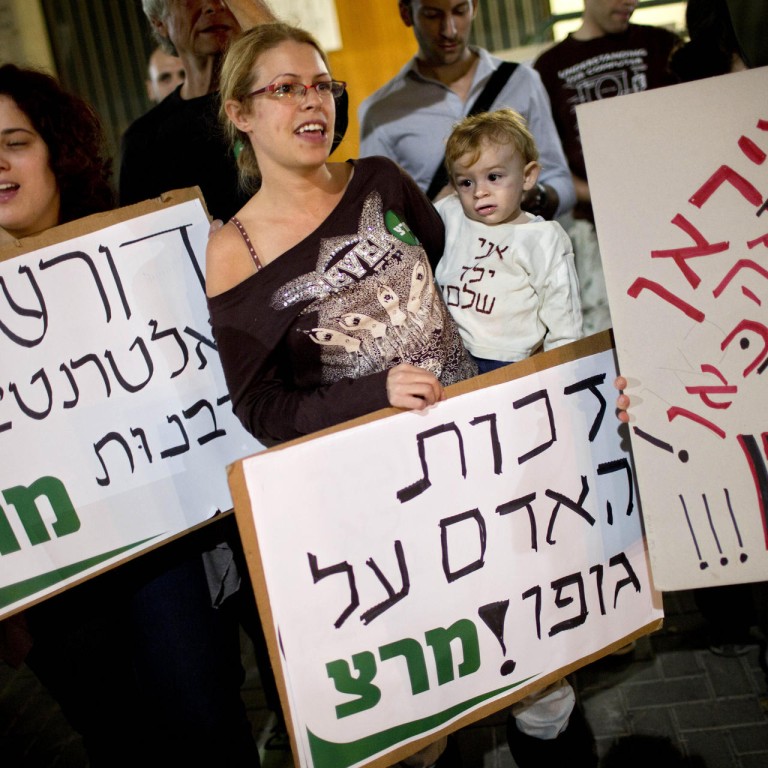
Israeli rabbinic court fines woman for refusing to have son circumcised
Rabbinic court rekindles debate about balance between Jewish and democratic nature of Israel
The decision of an Israeli court to fine a woman hundreds of US dollars for refusing to circumcise her baby son has evoked a public furore and brought the role of religion in the country back into the focus.
It shines a spotlight on a long-running debate over religious coercion in Israel, where generations of leaders have struggled to find a balance between the country's Jewish and democratic character.
Rabbinic courts in Israel have authority over certain Jewish family matters such as marriage, divorce, conversion and burial. Their decisions are binding for families that agree to take part in them, though their rulings can be appealed in the country's secular court system. This particular case ended up in the rabbinic court as part of an ongoing divorce battle.
In the proceedings, the woman announced her refusal to circumcise the boy, saying she did not wish to harm him. The Israeli rabbinate's high court ruled last week the circumcision was for the child's welfare and that the woman must pay the equivalent of nearly US$150 each day she refuses to allow the circumcision to be performed.
"The decision is not based only on religious law. It is for the welfare of a Jewish child in Israel not to be different from his peers in this matter," said Shimon Yaakovi, the legal adviser to the rabbinical court.
He said it was the first time a religious court in Israel had punished a parent for refusing to circumcise a child. A year ago, a civil court also ruled in favour of circumcision in a parental dispute.
There is no law requiring circumcision in Israel, but the vast majority of Jewish boys undergo the procedure at the age of eight days in line with Jewish law, which sees the ritual as upholding a covenant with God.
The mother, whose name was not released in court documents, has argued that the rabbinical court does not have authority over the matter.
The Justice Ministry, which is representing the mother, said on Thursday it would probably file an appeal in the case to Israel's Supreme Court.
There are no precise statistics on circumcisions in Israel.
While most families have the procedure performed either out of religious belief or to preserve an ancient tradition, tens of thousands of children are not circumcised, activists say.
Ronit Tamir, who is an anti-circumcision activist, called the rabbinic court's ruling "dangerous for democracy".
"It turns the government into a theocracy," she added.
Although most Israelis are secular, Israel's founding fathers gave Judaism a formal place in the nation's affairs. This situation has led to persistent tensions in Israeli society.
